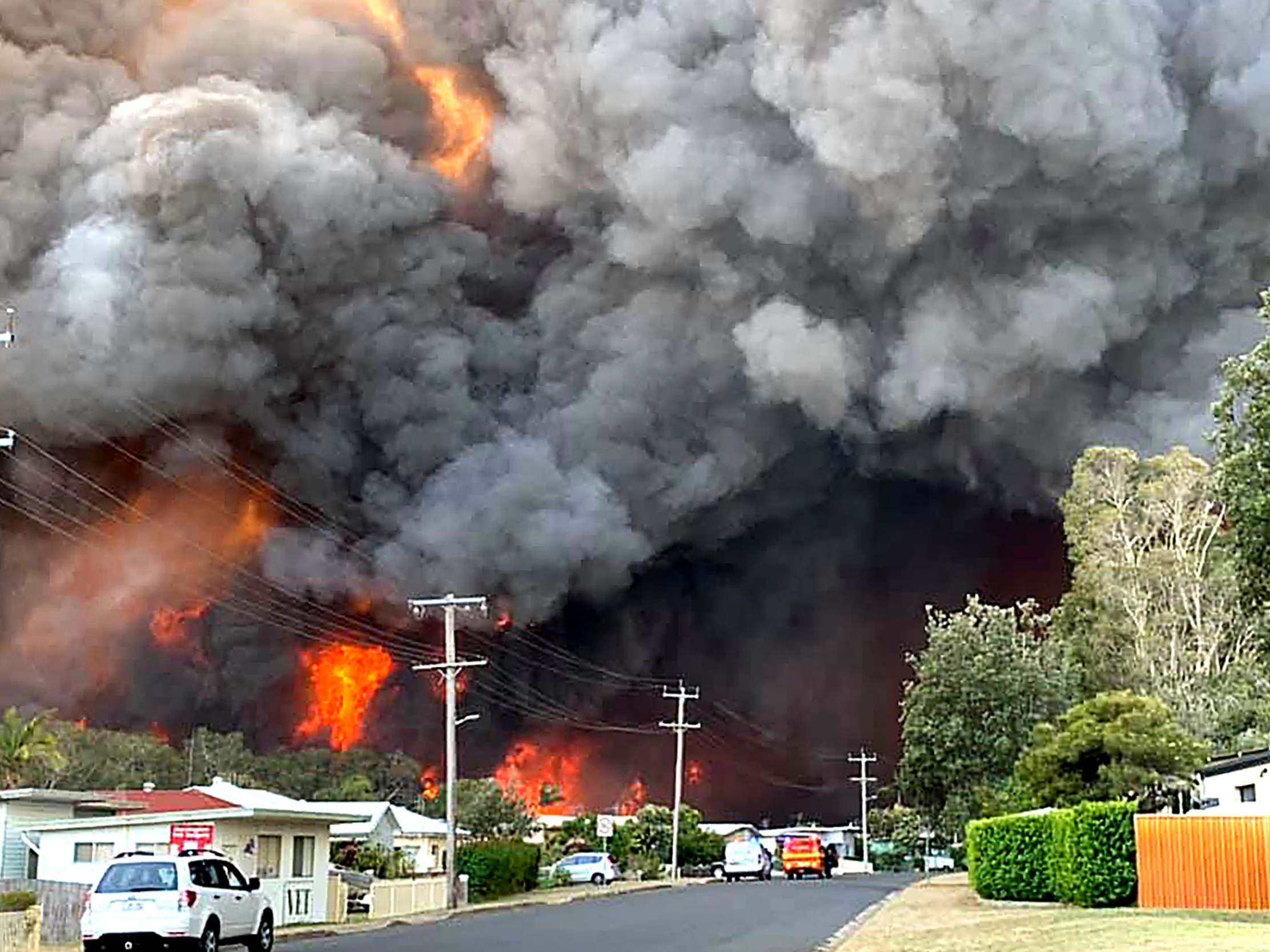Australia wildfires: Woman died ‘in absolute panic’ as her home was engulfed by flames
Road to grandmother Vivian Chaplain’s house was ‘tunnel of fire’, relative says
Your support helps us to tell the story
From reproductive rights to climate change to Big Tech, The Independent is on the ground when the story is developing. Whether it's investigating the financials of Elon Musk's pro-Trump PAC or producing our latest documentary, 'The A Word', which shines a light on the American women fighting for reproductive rights, we know how important it is to parse out the facts from the messaging.
At such a critical moment in US history, we need reporters on the ground. Your donation allows us to keep sending journalists to speak to both sides of the story.
The Independent is trusted by Americans across the entire political spectrum. And unlike many other quality news outlets, we choose not to lock Americans out of our reporting and analysis with paywalls. We believe quality journalism should be available to everyone, paid for by those who can afford it.
Your support makes all the difference.A grandmother who was one of at least three people killed in Australia’s wildfires died alone “in an absolute panic”.
Vivian Chaplain’s daughter-in-law Chrystal Harwood was the last person to speak to the 69-year-old as her home in the village of Wytaliba, in New South Wales, was engulfed by flames on Friday.
Ms Harwood said: "She was in an absolute panic. She said 'We're on fire. There's fire everywhere. I need the boys here now’.
"Before I even got to tell her to just get out, she'd hung up on me. I couldn't get back through to her. I tried so many times.
"She was amazing. She was such a strong, loving woman."
Ms Harwood had made a desperate plea on social media for someone to come to the grandmother’s aid, describing the road leading to her home near Glen Innes as “a tunnel of fire”.
Ms Chaplain was found unconscious and with serious burns on Friday and later died in hospital, Rural Fire Service Commissioner Shane Fitzsimmons said.
Firefighters found another body on Saturday morning in a burned car near Glen Innes, a victim of the same fire, officials said. The local man's name has not been released.
A third body was found Saturday afternoon hundreds of miles away in a burned house at the village of Johns River, north of Taree, police said.
They added that an autopsy will determine whether the victim is the 63-year-old woman who owns the house.
About 1,500 firefighters have been battling more than 70 fires across Australia's most populous state, New South Wales, with the most intense in the north east where strong winds have fanned the flames.
Five people have been reported missing in the vicinity of the Glen Innes fire, while more than 30 people, including firefighters, received medical treatment for burns and smoke inhalation.
One patient also suffered cardiac arrest, officials said.
At least 150 homes have been destroyed since Friday, while hundreds have evacuated their homes along a 310-mile stretch of coastline from the Queensland state border south to Forster.
Many spent the night in evacuation centres, while some slept in cars.

In Queensland, where about 50 wildfires were raging on Saturday, at least one house was lost, a firefighter suffered a broken leg, and 6,000 residents were evacuated from three communities in the state's southeast, police said.
Prime minister Scott Morrison warned Australia to expect more bad news from the fire zones after the third victim was confirmed.
"The devastating and horrific fires that we have seen, particularly in New South Wales but also in Queensland, have been absolutely chilling," he said.
The annual Australian fire season, which peaks during the Southern Hemisphere summer, has started early after an unusually warm and dry winter.
Additional reporting by Associated Press.
Subscribe to Independent Premium to bookmark this article
Want to bookmark your favourite articles and stories to read or reference later? Start your Independent Premium subscription today.

Join our commenting forum
Join thought-provoking conversations, follow other Independent readers and see their replies
Comments